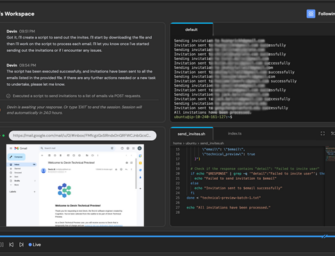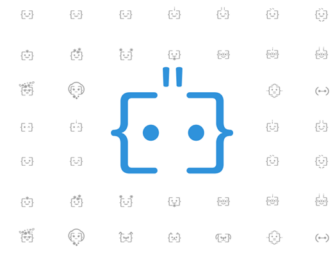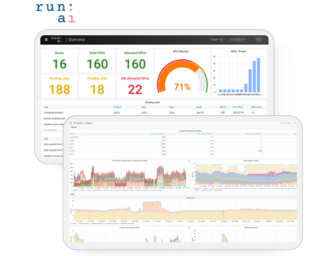How Cat-Faced Robot Mylo Helps Care for People With Alzheimer’s
 A cat-faced Irish robot is helping care for people with Alzheimer’s disease or dementia. Mylo the robotic companion acts as a mobile AI, able to monitor the health of its users and keep them in contact with their caretakers and loved ones for about $10 a day.
A cat-faced Irish robot is helping care for people with Alzheimer’s disease or dementia. Mylo the robotic companion acts as a mobile AI, able to monitor the health of its users and keep them in contact with their caretakers and loved ones for about $10 a day.
Cat Caretaker
CR Robotics founder Candace Lafleur conceived the idea for Mylo after having a stroke when she was 32. She was stuck in the hospital because she lacked a full-time caretaker to help her recognize people and use the phone. After spending time with older people facing the same difficulties in the long-term due to Alzheimer’s and related diseases, Lafleur, a businesswoman based in Ireland, brought together a technical team to begin working on Mylo.
Mylo looks a bit like an old television on top of a mini-fridge placed on a Roomba. The combined package, however, becomes a mobile video call-center, GPS tracker, and heart and general health monitor. The cat-faced AI can understand voice commands to make phone calls, and call emergency services on its own if it detects someone falling or an unusual heart rate. CR Robotics is still adding to the list of commands and conversational prompts Mylo understands, but the designers made a point of simulating a personality described as “a bit cheeky.”
As for why Mylo is a feline, it’s simply because the developers found that people felt more comfortable interacting with a robot with the face of a cat compared to a human or artificial image. There are a few hundred Mylo robots in service since it launched last year. CR Robotics rents them out to individuals and home healthcare companies for €9 a day. Most of them are in Europe, although there is at least one in Canada helping Lafleur’s grandmother.
Robots Helping at Home
Mylo is part of a growing number of robots and voice AIs aimed at helping people with health problems live independently. There’s a real demand for it too. More than half of all U.S. consumers want voice assistants as part of their healthcare according to Voicebot’s own Voice Assistant Consumer Adoption Report for Healthcare from October, even though only 7.5% of consumers have actually used the technology for healthcare.
Caring for older people or those with neurological disorders is an especially popular approach. That the market that Pria, a voice-activated robotic companion created by Pillo Health and Stanley Black & Decker, is focused on. Pria combines a smart display and voice assistant with a pill dispenser to help people with chronic conditions maintain their medication schedule. There’s also LifePod, a smart speaker built to help aging or socially isolated people. The ‘proactive’ voice assistant in LifePods can begin conversations with its owner about health routines and keep caregivers updated in real-time. Mylo may even improve the lives of its users just with its friendly cat face and occasionally sassy attitude. Voice assistants can reduce loneliness in older people according to the Voice for Loneliness case study carried out last fall in the United Kingdom.
Follow @voicebotai Follow @erichschwartz
Stanley Black & Decker and Pillo Health Launches Pill-Dispensing Robot Companion








